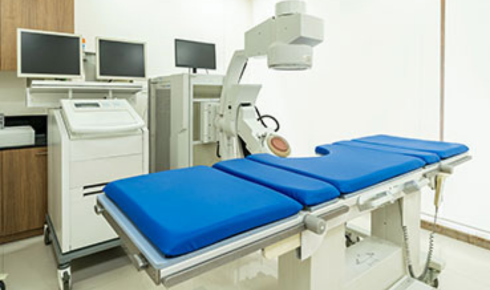As the healthcare landscape evolves, more individuals are exploring alternatives to traditional in-hospital or nursing home care. One increasingly popular option is private home health care, a personalized service that allows individuals to receive medical or non-medical assistance in the comfort of their own home. This guide explores the key aspects of private home health care, from understanding its benefits to knowing how to choose the right provider for your needs.
What Is Private Home Health Care?
Private home health care refers to professional medical and non-medical care provided at home for individuals who need assistance with daily activities or medical conditions. This can include care for elderly adults, individuals recovering from surgery, those with chronic illnesses, or people with disabilities. Unlike public or community-based services, private home health care is paid for out of pocket or through private insurance and is tailored to meet the specific needs of the individual.
The Benefits of Private Home Health Care
Choosing private home health care offers a range of benefits that can enhance both quality of life and personal comfort.
1. Personalized Care Plans
With private home health care, each care plan is customized based on the individual’s medical condition, daily routines, and preferences. This is especially beneficial for individuals who require specialized attention, whether it’s managing a chronic illness, post-surgery rehabilitation, or daily personal care tasks like bathing, dressing, and meal preparation.
2. Comfort of Home
One of the most significant advantages of private home health care is the ability to remain in a familiar environment. Being at home promotes emotional well-being and allows individuals to continue their daily routines in comfort. For many, this reduces the stress and anxiety that may arise from relocating to a care facility or hospital.
3. Enhanced Independence
Private home health care empowers individuals to maintain a level of independence that may not be possible in an institutional setting. Caregivers work to support the individual’s abilities, ensuring they can continue to engage in activities they enjoy while receiving the necessary assistance.
4. Continuity of Care
Private home health care typically provides continuity, meaning that the individual will have a consistent caregiver or small team over time. This fosters a trusting relationship between the patient and caregiver, resulting in more effective care and a stronger emotional connection.
5. One-on-One Attention
In care facilities, staff may be responsible for multiple patients at a time. Private home health care ensures that the individual is the sole focus of attention. This means that caregivers can devote more time and energy to the patient’s well-being, offering greater attention to detail and faster response to any changes in health status.
Types of Services Provided
Private home health care services range from basic non-medical support to complex medical care, depending on the individual’s needs. Some common types of services include:
1. Personal Care
Personal care services help individuals with activities of daily living (ADLs), such as bathing, dressing, grooming, and mobility assistance. This is especially helpful for elderly adults or individuals with physical limitations.
2. Skilled Nursing Care
For those with medical needs, skilled nursing care provides advanced health services, including wound care, medication management, intravenous therapy, and post-surgical care. Licensed nurses deliver these services, ensuring that individuals receive the appropriate medical attention at home.
3. Physical, Occupational, and Speech Therapy
Home-based therapies are ideal for individuals recovering from surgery or living with chronic conditions that impact mobility, strength, or communication skills. These therapies are designed to improve the patient’s physical abilities and overall quality of life.
4. Companionship Services
Companionship services are available for individuals who may not need extensive medical care but benefit from emotional support and social interaction. Caregivers can engage in conversation, accompany the individual on errands, or help with hobbies and recreational activities.
5. Respite Care
For family caregivers who need a break from their duties, private home health care can offer respite care services. This ensures that the loved one continues to receive quality care while the family caregiver takes time to rest or attend to personal needs.
How to Choose the Right Private Home Health Care Provider
Selecting the right provider is essential for ensuring that the care is effective, safe, and personalized. Here are some key factors to consider:
1. Accreditation and Licensing
Always ensure that the home health care agency or individual caregiver is licensed and accredited by relevant health authorities. This guarantees that they meet industry standards for care and professionalism.
2. Experience and Expertise
Different caregivers may specialize in different types of care, such as elderly care, post-operative care, or care for individuals with chronic conditions. Evaluate the experience and expertise of the provider to ensure they can meet your specific needs.
3. Personal Compatibility
Since the caregiver will spend significant time with the individual, it’s crucial that there is a good personal fit. Consider scheduling a meeting with potential caregivers to assess their communication skills, empathy, and ability to connect with the patient.
4. References and Reviews
Ask for references from other families or clients who have used the provider’s services. Online reviews can also provide insights into the quality of care and professionalism of the provider.
5. Cost and Insurance
Private home health care can be expensive, so it’s important to understand the cost structure. Check whether the provider accepts private insurance or long-term care insurance, and confirm all payment terms upfront to avoid surprises.
Conclusion
Private home health care offers a tailored, compassionate approach to managing health and daily living needs in the comfort of one’s own home. From medical care to personal support, this service enables individuals to retain their independence, comfort, and dignity. By understanding the options available and selecting the right provider, you can ensure that you or your loved ones receive the highest quality of care possible.





